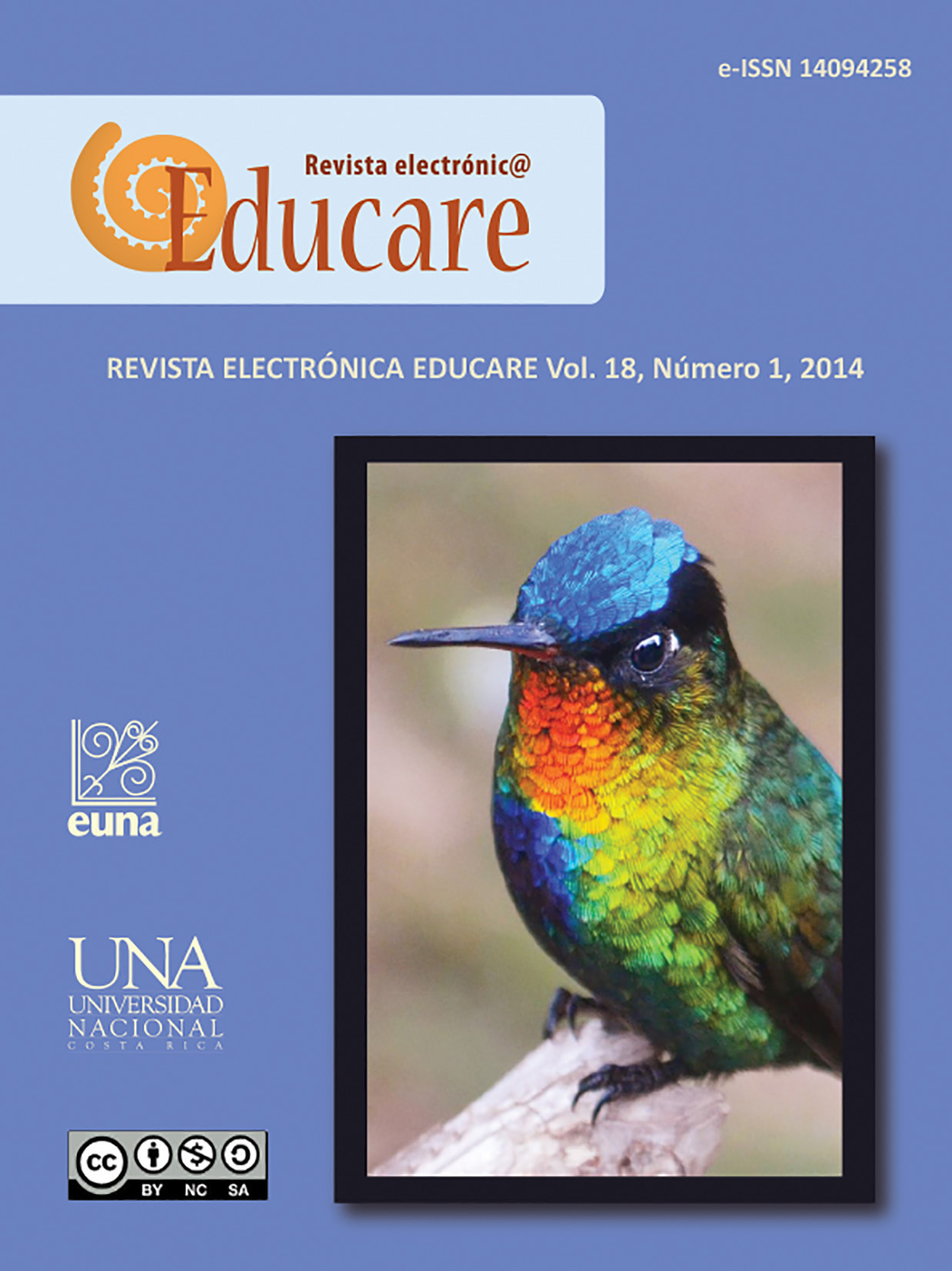Intercultural Counseling: A Perspective to Favor Coexistence in Multicultural Contexts
DOI:
https://doi.org/10.15359/ree.18-1.13Keywords:
Coexistence, identity, cultural diversity, counseling, interculturality.Abstract
This article refers to the professional practice of Counseling with an intercultural perspective to face multicultural contexts. The paper reflects on coexistence as a social challenge in multicultural contexts and analyzes the importance of culture in the creation of personal identity, and the resulting need for it to be considered in every counseling action. Principles, purposes and characteristics of the intercultural perspective are presented as an integrative model for the attention of cultural diversity, as well as some arguments to define intercultural counseling. The attitude, knowledge and skills to be developed by counselors to be interculturally competent are also mentioned in the paper. In addition, the study lists all those skills that should be promoted in the counselor’s clients to create a positive coexisting interaction based on their differences.
References
Aguado, T. (2003). Pedagogía intercultural. Madrid: McGraw-Hill.
Gallardo, P. (marzo, 2009). Educación ciudadana y convivencia democrática. Revista Interuniversitaria de Pedagogía Social, 16. Recuperado de http://www.upo.es/revistas/index.php/pedagogia_social/article/view/39/35
Gavilán, M. (2006). La transformación de la orientación vocacional: Hacia un nuevo paradigma. Argentina: Homo Sapiens Ediciones.
Giménez, C. (2003). Pluralismo, multiculturalismo e interculturalidad: Propuesta de clarificación y apuntes educativos. Educación y Futuro. Revista de Investigación Aplicada y Experiencias Educativas, 8, 1-24. Recuperado de http://dialnet.unirioja.es/servlet/ejemplar?codigo=138249
Malik, B. (2003). Intervenciones para la adquisición de competencias interculturales. En E. Repetto (Direct.), Modelos de orientación e intervención psicopedagógica (Vol. II Intervenciones psicopedagógicas para el desarrollo del aprendizaje, de la carrera de la persona, pp. 424-452). Madrid: UNED.
Martín-Baró, I. (1992). Acción e ideología: Psicología social desde Centroamérica. El Salvador: UCA Editores.
Organización de las Naciones Unidas para la Educación, la Ciencia y la Cultura [UNESCO] (Setiembre, 2003). Aprender a vivir juntos: ¿hemos fracasado? Síntesis de las reflexiones y los aportes surgidos durante la 46a Conferencia Internacional de Educación de La UNESCO Ginebra: Autor. Recuperado de http://www.ibe.unesco.org/fileadmin/user_upload/archive/publications/free_publications/ICE_2001_summary_sp.pdf
Repetto, E. (2001). La orientación intercultural: Problemas y perspectivas. Recuperado de http://www.aulaintercultural.org/IMG/pdf/elvira.pdf
Rojas, L. (enero-junio, 2007). Reflexiones para una nueva visión de la orientación. Revista Ciencias de la Educación, 1(29), 243-252. Recuperado de http://servicio.bc.uc.edu.ve/educacion/revista/vol1n29/art15.pdf
Sanz, R. (2001). Orientación psicopedagógica y calidad educativa. Madrid: Pirámide.
Us Soc, P. (2002). La práctica de la interculturalidad en el aula. San José, Costa Rica: CECC/SICA. Recuperado de http://www.ceducar.info/CEDUCAR/recursos/biblioteca%20online/Volumen%2013/HTML/index.html
Vásquez, J. A. (2007). Enfoque intercultural para una educación básica regular intercultural y bilingüe. Revista Cultural Electrónica Construyendo Nuestra interculturalidad, 4, 1-13. Recuperado de http://interculturalidad.org/numero04/docs/0202-Enfoque_Intercultural-Vasquez,Jose.pdf
Downloads
Published
How to Cite
Issue
Section
License
1. In case the submitted paper is accepted for publication, the author(s) FREELY, COSTLESS, EXCLUSIVELY AND FOR AN INDEFINITE TERM transfer copyrights and patrimonial rights to Universidad Nacional (UNA, Costa Rica). For more details check the Originality Statement and Copyright Transfer Agreement
2. REUTILIZATION RIGHTS: UNA authorizes authors to use, for any purpose (among them selfarchiving or autoarchiving) and to publish in the Internet in any electronic site, the paper´'s final version, both approved and published (post print), as long as it is done with a non commercial purpose, does not generate derivates without previous consentment and recognizes both publisher's name and authorship.
3. The submission and possible publication of the paper in the Educare Electronic Journal is ruled by the Journal’s editorial policies, the institutional rules of Universidad Nacional and the laws of the Republic of Costa Rica. Additionally, any possible difference of opinion or future dispute shall be settled in accordance with the mechanisms of Alternative Dispute Resolution and the Costa Rican Jurisdiction.
4. In all cases, it is understood that the opinions issued are those of the authors and do not necessarily reflect the position and opinion of Educare, CIDE or Universidad Nacional, Costa Rica. It is also understood that, in the exercise of academic freedom, the authors have carried out a rogorous scientific-academic process of research, reflection and argumentation thar lays within the thematic scope of interest of the Journal.
5. The papers published by Educare Electronic Journal use a Creative Commons License:














 The articles published by Educare Electronic Journal can be shared with a Creative Commons License:
The articles published by Educare Electronic Journal can be shared with a Creative Commons License: 



